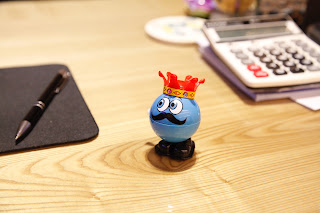Why should you teach children about Money?
Financial intelligence is one form of intelligence that should be taught to kids at an early stage. Why? You might ask. Simple. No one ever wants to have a wasteful child. You do not want to watch your child grow into an adult stumbling from one bad financial decision to another. Let’s also face it, while children learn from watching their parents, there are also things that should be taught.
I believe by now, we all have agreed on the fact that your child needs to learn about money and how to create and manage wealth, right? But hold on a bit, this is not the time to bust out your secondary school economics textbooks, neither is it the time to load your kid's memories with accounting terms they cannot grasp yet. Your aim is to help your kids get knowledge, not prepare them to write an ICAN exam.
So what should you do? Luckily, today we will be identifying 5 interesting ways to teach children about money.
So what should you do? Luckily, today we will be identifying 5 interesting ways to teach children about money.
1. Play Money Management Games
Games are a fun way to teach your kids about money. Stephanie W. Mackara, president and principal wealth advisor of Charleston Investment Advisors said “Studies have shown that children learn best when engaged and active,” and what better way to keep children engaged than games. These games could be through a phone, gaming device, or board games. Many adults know about monopoly, but there are countless other games and apps that help children gamify the money learning experience. 2. Piggy Banks are still Fun
Remember back when you were a child and you would have a jar or wooden box for saving the little change visitors gave to you? This has not gone out of date. Encouraging your children to cultivate a savings habit is one sure-fire way to teach them about keeping money. This will help them to be disciplined, and occasional rewards for saving would also help your kids see the benefits of setting asides money they have that is not in active use.Read: How to Live a Debt-free Lifestyle
3. Help Your children create little Budgets
Having a budget is one of the hallmarks of someone with the right financial knowledge, but compared to gaming, this concept could be a bit tedious for your kids. Since you are trying to make learning fun for your kids, you might not normally go down this route, but there is a way out. When drawing up your family budget, help your kids outline the little things they can afford with their allowances and savings and help them draw up a budget for those things too. They will understand little by little the things they should consider as priorities and how to effectively divide their money.Read: 5 Recommended Mobile Apps for Baby Investors in 2025
4. Help your Kids Learn Financial terms in bits
An African adage says that if you want to swallow an elephant you start eating it bit by bit, the same goes for educating your children about money. Introduce the to books that break down financial terms for them. Teach them about savings, interests, loans, and investments, and do it using examples they can relate to. Let them watch educational cartoons and draw examples from fun cartoons they have seen. Invariably this means you also have to have a level of financial literacy yourself.5. Gamify the learning experience
Beyond teaching children about finances through games, you can also gamify the learning experience for your kids. Gamifying learning experiences simply means their learning experience into a game in itself. You can do this through setting milestones, using reward systems, and point systems too. There should be ways to earn points and also to lose points too.
Once your children get the hang of the game process, it would be hard to unhook them which would result in a fun lifelong experience for learning about money.
Once your children get the hang of the game process, it would be hard to unhook them which would result in a fun lifelong experience for learning about money.


Post a Comment